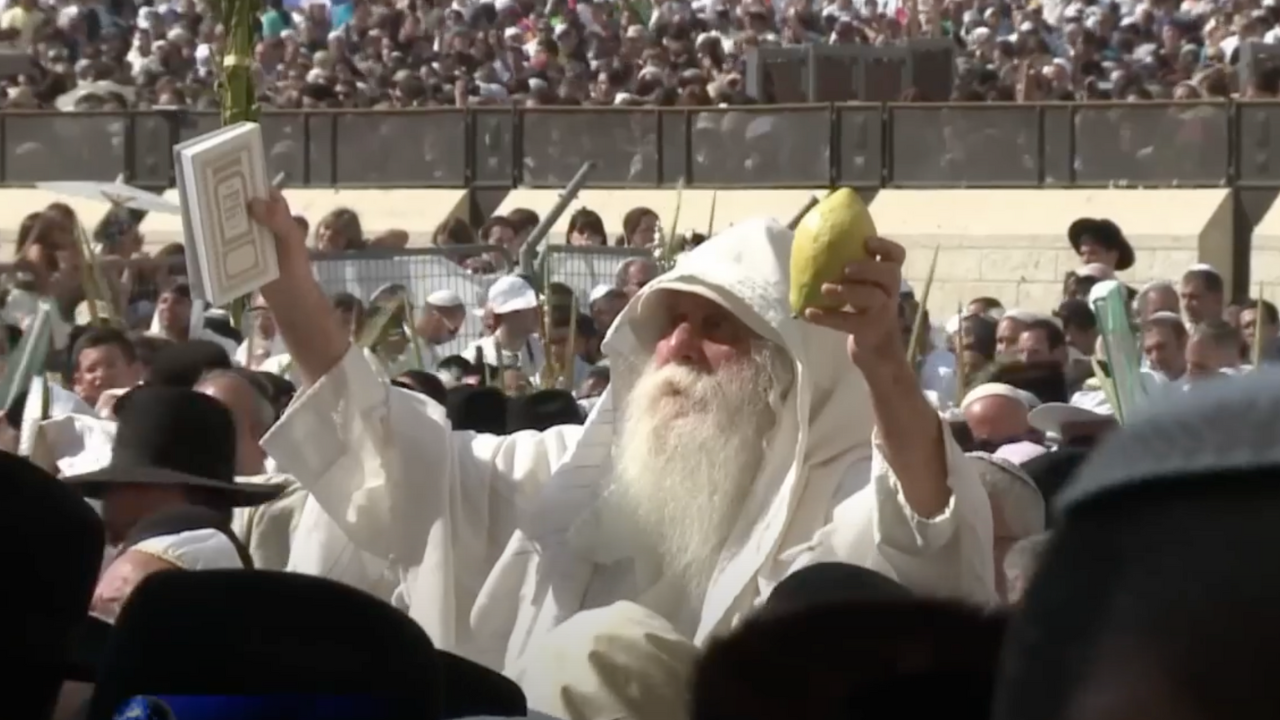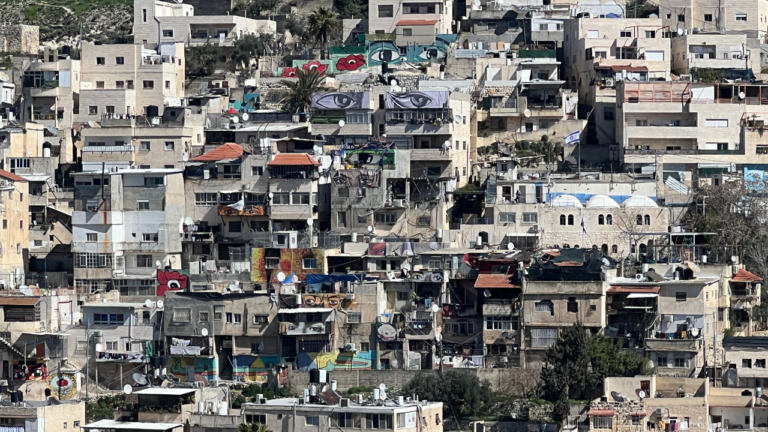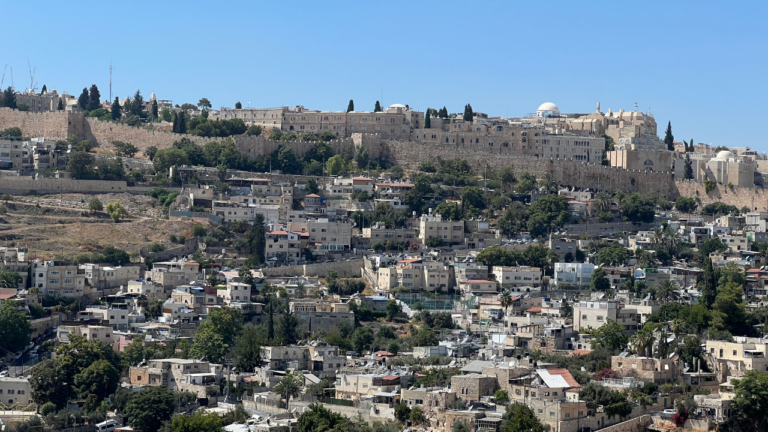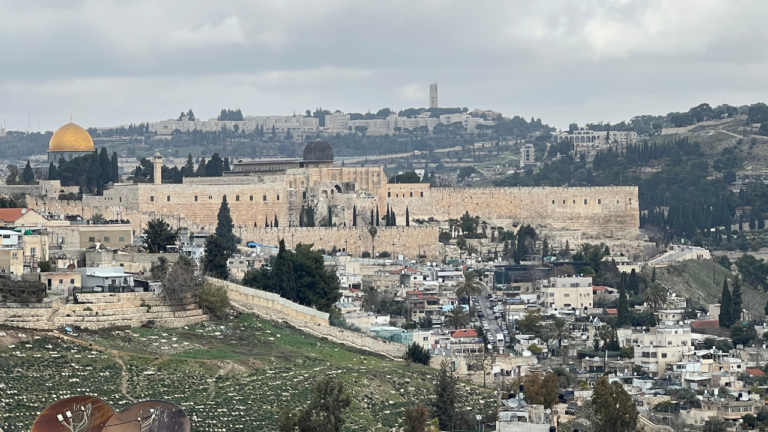The Booth of David
Normally, when reciting birkat hamazon during a yom tov, we say a generic verse for all holidays הרחמן הוא ינחילנו יום שכלו טוב, “the Compassionate One! May He cause us to inherit the day which is completely good.” And yet, on the first night of Sukkot, we will recite two verses. In addition to the standard yom tov insertion, we also say (or sing) the following: “הרחמן הוא יקים לנו את סכת דוד הנפלת, the Compassionate One! May he erect for us David’s fallen booth!”
The symbolism of the “fallen sukkah of David” is drawn from Amos (9:11), where the navi describes the eventual restoration of David’s sukkah alongside the ingathering of Jewish exilesand great prosperity in the land of Israel. The mefarshim provide two different interpretations as to what means when he references this sukkah. Targum Yonatan and many others explain that God is promising to restore the malchut of David, reestablishing his royal line. Rav Yosef Kara thinks that the sukkah is actually the Beit HaMikdash, being linked to David because of his initial preparations for the temple structure and his sincere desire to build it himself.
This double interpretation is not surprising, given the clear links between David’s kingship and Jerusalem’s restoration (as we have discussed in the past). However, the language of sukkah is strange, or even disturbing. As the Gemara Sukkah expresses several times, a sukkah is, by definition, temporary. In fact, we pasken that a permanent structure is disqualified for use as a sukkah (see Sukkah 2a, with Shulchan Aruch, Orach Chayim 633:1). If the sechach used to cover the sukkah is permanently nailed in, it would no longer be viable for the mitzvah.
What kind of comfort is Amos HaNavi providing us when prophesizing that the “glorious” restoration of Jerusalem and Mashiach ben David will be as flimsy as a temporary booth? And why on earth should we pray for such a renewal?
Upon deeper inspection, the sukkah is exactly what David HaMelech and the Beit HaMikdash are all about. The holiday of sukkot, referred to in the Torah as the חג האסיף (the festival of the harvest) comes at the very end of the agricultural cycle, when all produce has been harvested, gathered, processed, and stored. This is the apex of economic stability and success; the farmer (and all those that are fed by his enterprise) rejoices at his accomplishments and anticipates the plenty that results from such a year. It is at this moment that the Torah commands him to leave the stability and security of his home. He relocates into a dirat arai, a flimsy, temporary structure, for the duration of seven days.
But this humble sukkah is far more than what meets the eye. The Gemara tells us that HaKadosh Baruch Hu’s Divine presence rests upon the sukkah, conferring a unique form of sanctity that normally is reserved for korbanot (Sukkah 9a). The shade of the sukkah is the shade of the Divine Hand, the protective presence of the Shechinah. Rebbe Eliezer teaches us that the sukkah reminds us of the divine clouds that protected us in the desert, as we traveled with no alternative means of protection.
The mitzva of sukkah extricates the farmer from his false sense of physical security and obsession with material pursuit. In reality, only HaKadosh Baruch Hu provides protection, stability, and prosperity. Without His divine love and mercy, we would be left bereft of all accomplishments. Our secure homes and borders would become porous and flawed. Our parnassah would yield nothing. And our health and equanimity would quickly be lost, r’l.
David HaMelech’s greatness was found specifically in recognizing this reality. For all of his military might, economic success, and political accomplishments, he dedicated and attributed everything to the Almighty. He viewed his kingship as a simple sukkah, a temporary booth with no natural staying power if not for the graceful bestowal of success from above.
The holy city that David built represents the same message. The center of the capital of Israel was not the King’s palace, but rather the holy temple. The Mikdash was the spiritual gateway for the universe’s sustenance; without this essential conduit, all physical undertakings would be meaningless. Blessings in grain, wine, and meat were engendered by divine service, revealing the true source of beracha in this world.
After a second Iranian missile attack was thwarted by advanced protective systems, I’ve been thinking about a vicious catch 22. Many experts testified that the failure of Iran to harm a single Israeli in these attacks was nothing short of an open miracle, almost the equivalent of a divine cloud absorbing the missiles of our enemies. But when an open miracle happens again and again, the “natural” reaction is to assume that there is nothing so miraculous about this at all. How ironic that it would take a tragedy (God forbid) for us to recognize how dependent we are upon Hashem. The message of David HaMelech and Jerusalem is clear: even the advanced THAADs and David Slings of the world are still “booths”. Their ability to protect us is solely dependent upon the Master of the World that facilitated their existence in the first place.
As we sit under the Divine Presence this Sukkot, let us yearnfully pray for the day in which Jerusalem is restored and all of creation recognizes its true source.



